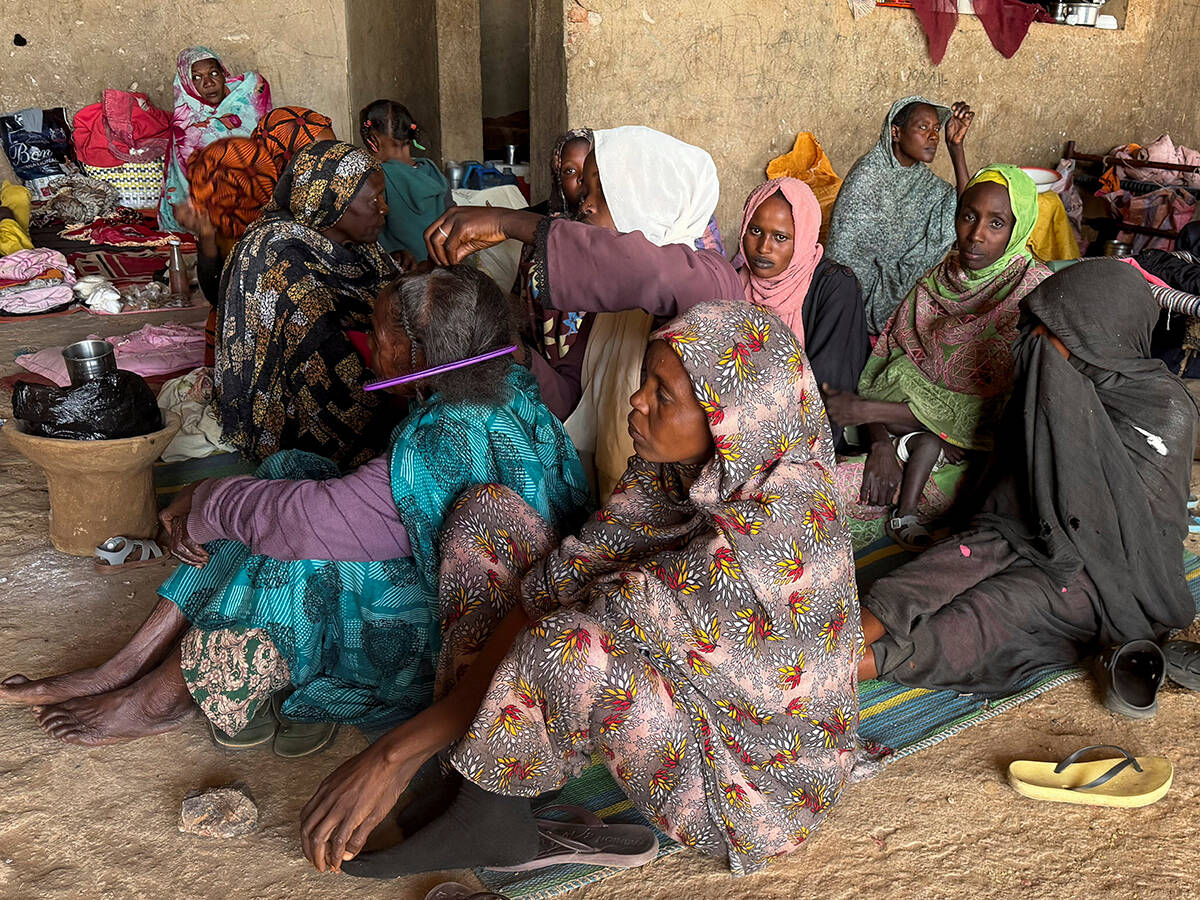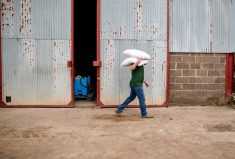Glacier FarmMedia – An online course to help producers and international farmworkers protect themselves from COVID-19 is being launched.
The Canadian Centre for Occupational Health and Safety (CCOHS) is offering the free guide in English, French and Spanish.
Participants will learn methods of preventing the spread of COVID-19, which has caused deaths and illnesses on Canadian farms since the pandemic began.
Workplaces are “strongly encouraged” to offer the 45-minute course to temporary foreign workers across operations of all kinds and sizes.
Five different units are offered, and each module includes a series of interactive features like review questions or self-assessment quizzes.
Read Also

Global humanitarian aid slashed by one-third
Humanitarian aid around the world was cut by a third in 2025 and Canada is one of the culprits.
The first unit offers a basic explanation of COVID-19 and how to recognize or screen for common symptoms. Effectively using masks and practising preventative measures (like social distancing) are also covered.
One topic in the course focuses exclusively on more agriculture-specific situations, like living in congregate housing or travelling in groups.
Health and safety are included, as well. Students of the course will learn more about their legal rights and responsibilities as well as available mental health resources.
Printable certificates of completion are available through CCOHS.
Many employers may already be familiar with some of the organization’s materials: the $50 “Orientation on health and Safety for New Agricultural Workers” offered by the organization is already used widely. The new, COVID-19-specific materials are now included in that course.
Migrant rights advocates have escalated calls for better protections since the pandemic began. They say five migrant workers have died since March, and the topic has captured the public’s attention in recent months.
There are continued reports of migrant workers being subject to harsh quarantine measures and living conditions.
Last June, federal Minister of Health Patty Hajdu told a parliamentary committee the way migrant workers are treated is a “national disgrace.”
“I am learning about the way that migrant workers are treated, both documented and undocumented by the way, in this country, if you’re not aware of it, would curl your hair,” she said at that time, later adding, “There are many excellent farmers and farm corporations that are doing a good job, but there are others that are not protecting the health of their workers and are not taking it seriously.”
Advocates have called for the federal government to extend rights by offering permanent residency to more temporary foreign workers.
A recently announced federal program is opening up 90,000 new permanent residency positions, including 30,000 spots available for farm and processing workers to apply to.
Critics say that program doesn’t go far enough and comes with criteria attached to it that excludes the majority of would-be applicants.

















